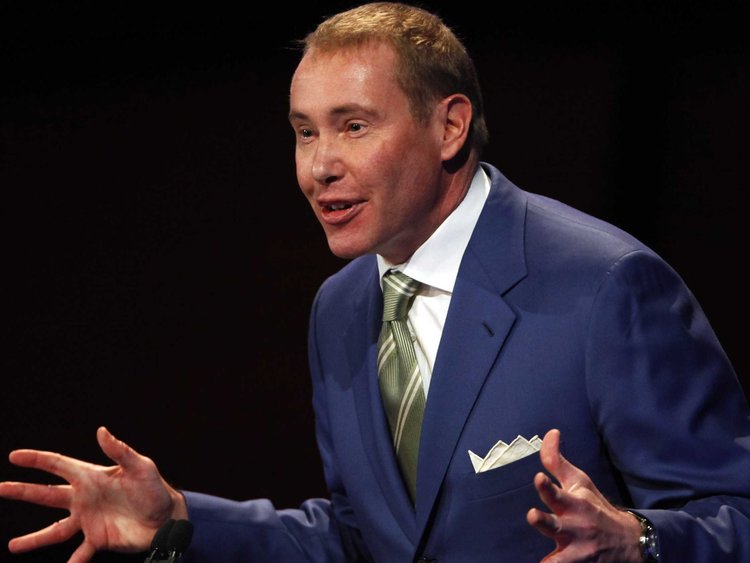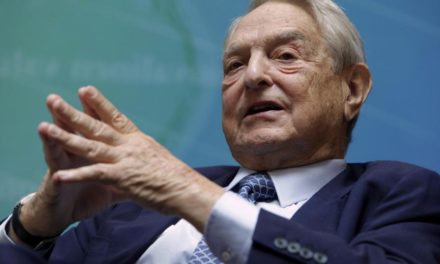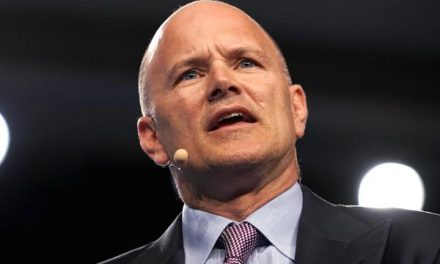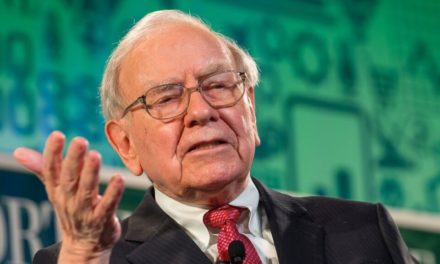Jeffrey Gundlach talks about markets in his latest interview, saying that 2019 was plain sailing for stock investors.
“I think 2019 has been the easiest years ever for investors, just throw a dart and you are up 15-20%” said Jeffrey Gundlach, referring to US stocks. In terms of a one-way bullish winning bet, Jeffrey Gundlach talks about markets also from a global perspective. In the year of the perpetual global stock bull market international investors would have performed almost as well as US investors.


“I think 2019 has been the easiest years ever for investors, just throw a dart and you are up 15-20%”
JEFFREY GUNDLACH
Jeffrey Gundlach talks about markets where he cited that nearly all asset classes performed well
“2019 looks strong when you look at global stocks, gold, bitcoin, and just about everything else but you need to remember it come off an extremely arbitrary point” said Jeffrey Gundlach.
“Year-end 2018 was a very low point because the Q4 2018 was incredibly weak and so if you look at things in broader context markets are turning around Treasury yields have been around 2% on the 10 year for a while” he said.
The outperformance of US stocks versus global stocks was highlighted in Jeffrey Gundlach talks about markets interview
“S&P 500 and the Dow Jones have reached new highs but stocks outside the US are still below where they were in January 2018” he said.

“S&P 500 and the Dow Jones have reached new highs but stocks outside the US are still below where they were in January 2018”
JEFFREY GUNDLACH
The Fed’s policy transition from tightening to easing was cited in Jeffrey Gundlach’s talks market interview as the main reason for reinvigorating the bull market
“What helped 2019 no doubt was the massive U-turn by the Fed,” he said.
“It is hard to believe how things have changed in the last 12 months,” said Jeffrey Gundlach referring to the macro fundamentals. But in another instance, Jeffrey Gundlach noted that GDP has started to look worse. Moreover, he also referred to the November’s disappointing ISM data, which showed manufacturing in a slump as “terrible”.
Jeffrey Gundlach talks about markets by bringing to the audience’s attention the Fed’s erratic policy in 2019
“A year ago the Fed was in automatic quantitative tightening (QT),” he said. “They said in the December conference that they would be on automatic pilot QT, no matter what the data said and then the markets tanked,” added Jeffrey Gundlach.
Jeffrey Gundlach talks about markets by pointing out that the Fed was also going to have sequential rate hikes
But all that changed one week later when stock prices collapsed.
Suddenly, we went from no more QT but in response to the Repo markets the Fed is doing QE part 4, but they don’t want to call it that they are using semantics,” said Jeffrey Gundlach.
Jeffrey Gundlach argues that regarding QE, when the Fed says they are not doing it for long term interest rates but overnight money short term interest rates, the Fed is still expanding their balance sheet.
“If we were not expanding the national debt we would have negative nominal GDP right now, so the entire expansion we have had in QE is all debt-based” – Jeffrey Gundlach
Jeffrey Gundlach talks about markets concerning the fixed income bond market showing signs of distress
Jeffrey Gundlach then moves to the topic of the recent Repo Market madness.
“The dust-up in the Repo market shows that the Fed has manipulated interest rates to a level that the market doesn’t accept because if you can’t float overnight money at the level of the fed fund rate, it means that natural demand is not there” said Jeffrey Gundlach.
Jeffrey Gundlach talks about markets interims reinforcing his view of higher bond yields
“In the next recession, absent the Fed doing massive monetary purchases, interest rates at the long end of the curve would probably go up because of supply problems” he said.
“The growth in the national debt is substantially higher than growth in nominal GDP. We talk of how good the economy is in terms of employment that is true, but in terms of other things the economy isn’t that good” he added.
Jeffrey Gundlach talks about markets where the national debt blowout is fuelling economic activity
“If we were not expanding the national debt we would have negative nominal GDP right now, so the entire expansion we have had in QE is all debt-based” said Jeffrey Gundlach.
Jeffrey Gundlach warned that the national debt and the level of GDP are at historic levels associated with the depth of a recession in terms of a stimulative policy.
“I think the pattern of US outperform the rest of the world has already come to an end” – Jeffrey Gundlach
Jeffrey Gundlach talks about markets in terms of where they are likely to be heading going forward
“I think the pattern of US outperform the rest of the world has already come to an end” he said.
Jeffrey Gundlach then talks about the varying rise and fall of other markets over the past 4 decades. He starts with Japan, then Europe, the Emerging markets (EMs) and the US.
“Japan 30 years later hasn’t come close to that high, then in the late nineties, it was Europe optimism of the Euro to be potentially the reserve currency. But when the recession hit European stocks got kneecapped and have never come back, then EMs with the dollar being weak that were the strongest region. The recession came and they too never made it back, Today we have S&P 500 as global outperformers” he said.
Jeffrey Gundlach talks about markets arguing that the above pattern will repeat itself
“When the US gets crushed it won’t make it to these highs for the rest of my career, he said.
So Jeffrey Gundlach talks about markets seeing a rotation out of US stocks and a weak dollar
“In the next recession, USD will fall because of US deficit problem, investors better served to own foreign stocks” he said.
Jeffrey Gundlach talks about markets interview concludes with the billionaire investor talking about recession watch indicators.
We have to watch for consumer confidence declining, which is definitely a sign of a recession.
Leading indicators are close to zero on a year to year basis, they need to go negative for a recession. He sees a 40% chance of a recession.
The yield curve turning positive, as a result of Fed easing before a recession is also suggestive of a recession.
“If there is a recession Trump will not be re-elected” said Jeffrey Gundlach
















